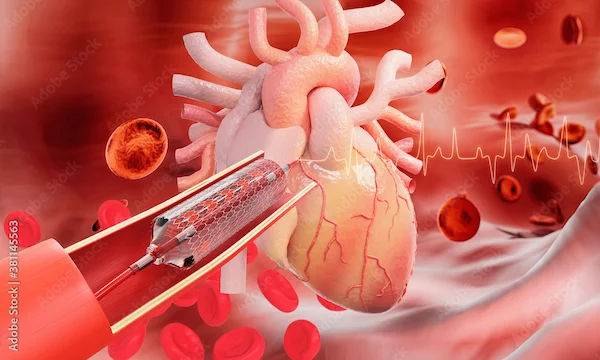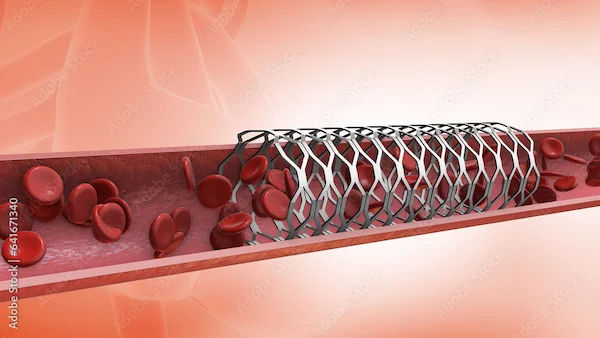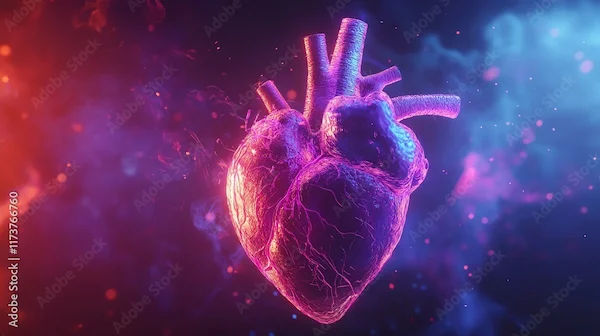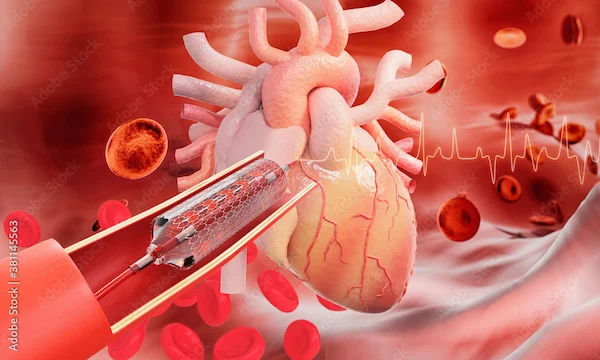Understanding FAST in Stroke Recognition
Learn what FAST stands for and why it's a critical acronym for stroke recognition. Understand the key signs of a stroke – Face drooping, Arm weakness, Speech difficulty, Time to call emergency – and how quick action saves lives and limits damage.

Written by Dr. M L Ezhilarasan
Reviewed by Dr. Rohinipriyanka Pondugula MBBS
Last updated on 12th Aug, 2025

A stroke is a medical emergency that requires immediate attention. Recognizing the signs early can save lives and prevent long-term disability. One of the simplest ways to identify a stroke is by remembering the acronym FAST—Face, Arms, Speech, Time. In this article, we’ll break down what FAST means, why it’s important, and how you can act quickly to help someone experiencing a stroke.
What is a Stroke?
A stroke occurs when blood flow to a part of the brain is interrupted, either due to a blocked blood vessel (ischemic stroke) or a burst blood vessel (hemorrhagic stroke). Without oxygen and nutrients, brain cells begin to die within minutes, leading to potential brain damage.
Strokes can happen to anyone, at any age, though certain factors like high blood pressure, diabetes, smoking, and a sedentary lifestyle increase the risk.
Why is FAST Important?
Time is critical in stroke treatment. The sooner a stroke is recognized and treated, the better the chances of recovery. The FAST method helps people quickly identify stroke symptoms so they can seek emergency medical help immediately.
Breaking Down FAST
The breaking down FAST includes:
F – Face Drooping
- What to look for: Ask the person to smile. Does one side of their face droop or feel numb?
- Why it happens: A stroke can weaken facial muscles, causing uneven facial expressions.
A – Arm Weakness
- What to look for: Ask the person to raise both arms. Does one arm drift downward or feel weak?
- Why it happens: Muscle weakness or numbness on one side of the body is a common stroke symptom.
S – Speech Difficulty
- What to look for: Ask the person to repeat a simple sentence. Is their speech slurred, strange, or hard to understand?
- Why it happens: A stroke can affect the brain's speech centers, making it difficult to speak clearly.
T – Time to Call Emergency Services
- What to do: If you notice any of these signs, call emergency services (or your local emergency number) immediately.
- Why it matters: Every minute counts. Early treatment can minimize brain damage and improve recovery.
Other Possible Stroke Symptoms
While FAST covers the most common signs, strokes can also cause:
- Sudden severe headache (often described as "the worst headache of my life")
- Sudden dizziness, loss of balance, or trouble walking
- Sudden confusion or trouble understanding speech
- Sudden vision problems in one or both eyes
If you or someone around you experience any of these symptoms, seek medical help right away.
What Should You Do if You Suspect a Stroke?
Things should be done if you suspect a stroke:
1. Call emergency services immediately – Do not wait to see if symptoms improve.
2. Note the time symptoms started – This helps doctors determine the best treatment.
3. Keep the person calm and safe – Have them sit or lie down to prevent falls.
4. Do not give food, water, or medication – Swallowing may be difficult, and some medications can worsen bleeding.
Consult Top Heart Specialists
How to Reduce Stroke Risk?
While some risk factors (like age or family history) can’t be changed, many lifestyle adjustments can lower your chances of having a stroke:
1. Manage Blood Pressure
- High blood pressure is the leading cause of strokes. Monitor it regularly and follow your doctor’s advice.
2. Control Diabetes & Cholesterol
- High blood sugar and cholesterol increase stroke risk. Eat a balanced diet and take prescribed medications.
3. Quit Smoking & Limit Alcohol
- Smoking damages blood vessels, and excessive alcohol raises blood pressure.
4. Stay Active & Maintain a Healthy Weight
- Regular exercise (even walking 30 minutes a day) improves circulation and heart health.
5. Eat a HeartHealthy Diet
- Focus on fruits, vegetables, whole grains, lean proteins, and healthy fats (like nuts and olive oil).
- Reduce salt, processed foods, and sugary drinks.
When to See a Doctor?
If you or a loved one has risk factors for stroke (such as high blood pressure, diabetes, or a history of heart disease), regular checkups are essential. Early detection and management can prevent strokes before they happen.
If you’ve experienced a ministroke (TIA – Transient Ischemic Attack), where symptoms resolve quickly, still seek medical help immediately, as it’s a warning sign of a possible major stroke.
Final Thoughts
Strokes are serious but treatable if caught early. Remembering FAST can help you act quickly and save a life. Share this information with family and friends—awareness can make all the difference.
If you have concerns about stroke risk or need expert advice, Apollo 24|7 offers consultations with neurologists and preventive health checkups. Early intervention can protect your brain health and overall well being.
Stay alert, act fast, and prioritize your health!
Would you like to schedule a consultation or a preventive health check? Visit Apollo 24|7 today for expert care.
Consult Top Heart Specialists
Consult Top Heart Specialists

Dr. Vijayakumar Subban
Cardiologist
15 Years • MD, DM (Cardiology), FNB (Intreventional Cardiology), Fellowship in Interventional Cardiology (The Prince Charles Hospital, Brisbane, Australia), Fellowship in Intravascular Imaging and Physiology (Asan Medical Center, Seoul, Korea), Cardiac CT (SCCT- Level II), Cardiac MRI (SCMR- Level I)
Chennai
Apollo Hospitals Greams Road, Chennai
(150+ Patients)

Dr. Birendra Pawar
Cardiologist
18 Years • MBBS, MD(Medicine), FIMSA, MIAE
Noida
Apollo Hospitals Sector 26, Noida
(50+ Patients)
Dr. Raman Puri
Cardiologist
29 Years • MD, DM
Delhi
Apollo Hospitals Indraprastha, Delhi
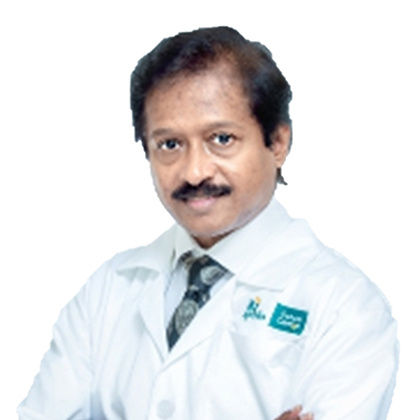
Dr. Rakesh Gopal
Cardiologist
22 Years • “ Trained in Trans Aortic Valve Implantation ( TAVI ) from Mehmet Akif Ersoy Hospital Istanbul, Turkey “ & MD (General Medicine), FRCP (Glasglow)DNB( Cardiology), FESC, HICR Cert (Harvard University, USA), Angioplasty Training from Washington Adventist Hospital USA, Asan Medical Centre, Seoul Korea, Board certified in Cardio Oncology, ICOS- USA
Chennai
Apollo Hospitals Heart Centre Thousand Lights, Chennai
(100+ Patients)
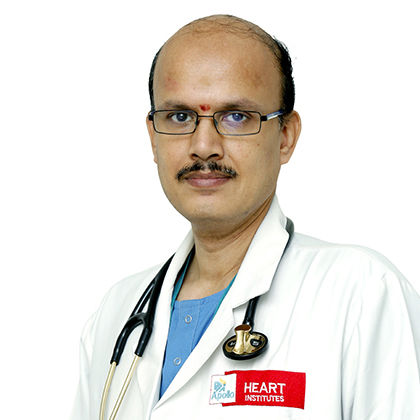
Dr. Srinivasan K N
Cardiologist
11 Years • MD, DNB (Cardio)
Chennai
Apollo Hospitals Greams Road, Chennai
(175+ Patients)
Consult Top Heart Specialists

Dr. Vijayakumar Subban
Cardiologist
15 Years • MD, DM (Cardiology), FNB (Intreventional Cardiology), Fellowship in Interventional Cardiology (The Prince Charles Hospital, Brisbane, Australia), Fellowship in Intravascular Imaging and Physiology (Asan Medical Center, Seoul, Korea), Cardiac CT (SCCT- Level II), Cardiac MRI (SCMR- Level I)
Chennai
Apollo Hospitals Greams Road, Chennai
(150+ Patients)

Dr. Birendra Pawar
Cardiologist
18 Years • MBBS, MD(Medicine), FIMSA, MIAE
Noida
Apollo Hospitals Sector 26, Noida
(50+ Patients)
Dr. Raman Puri
Cardiologist
29 Years • MD, DM
Delhi
Apollo Hospitals Indraprastha, Delhi

Dr. Rakesh Gopal
Cardiologist
22 Years • “ Trained in Trans Aortic Valve Implantation ( TAVI ) from Mehmet Akif Ersoy Hospital Istanbul, Turkey “ & MD (General Medicine), FRCP (Glasglow)DNB( Cardiology), FESC, HICR Cert (Harvard University, USA), Angioplasty Training from Washington Adventist Hospital USA, Asan Medical Centre, Seoul Korea, Board certified in Cardio Oncology, ICOS- USA
Chennai
Apollo Hospitals Heart Centre Thousand Lights, Chennai
(100+ Patients)

Dr. Srinivasan K N
Cardiologist
11 Years • MD, DNB (Cardio)
Chennai
Apollo Hospitals Greams Road, Chennai
(175+ Patients)

